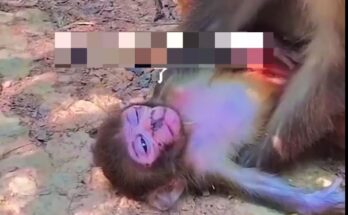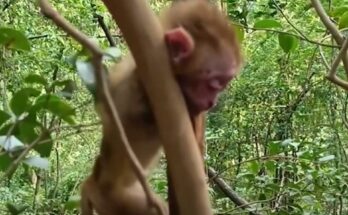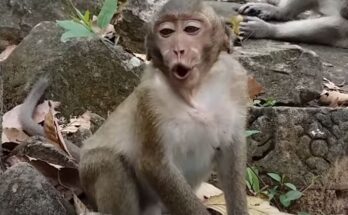In the animal kingdom, maternal care is often seen as a crucial aspect of survival, but in some cases, monkey mothers neglect or even reject their offspring. While this behavior may seem cruel from a human perspective, it is rooted in evolutionary and biological factors that determine which infants are most likely to survive and reproduce.
One major reason for maternal neglect or rejection in monkeys is the mother’s physical condition. If a mother is malnourished, stressed, or otherwise unhealthy, she may lack the energy and resources to care for her offspring properly. Raising an infant is an enormous investment, requiring constant feeding, grooming, and protection. If a mother assesses that she cannot successfully rear her baby, she may abandon or neglect it, ensuring that she conserves energy for future reproductive opportunities.
Another key factor is the infant’s own health and viability. Monkeys, like many other animals, have evolved mechanisms to recognize signs of weakness or illness in their offspring. If a baby appears too weak or sickly to survive, the mother may instinctively abandon it to focus on future, healthier offspring. This harsh strategy is a way of maximizing reproductive success in a challenging environment.
Social dynamics within monkey groups also play a role. In some species, dominant females exert pressure on lower-ranking mothers, leading to stress-related neglect. Additionally, young or inexperienced mothers may lack proper maternal instincts, leading to poor caregiving behaviors.
While it is difficult to witness such behavior, it is a natural part of evolution. In the end, these seemingly cruel decisions are shaped by survival instincts, ensuring that only the strongest offspring thrive in the wild. Understanding these behaviors provides insight into the complex and often unforgiving nature of animal survival.
4o


